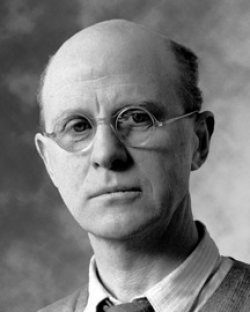Charles Elton

- Born
- 29 March 1900
- Died
- 1 May 1991 (age 91)
Charles Elton was a British biologist who is famous for framing the basic principles of modern animal ecology.
Elton studied at Liverpool College, and then studied zoology at New College, University of Oxford, graduating in 1922. Elton, amongst many other scientists, strongly disagreed with the emphases of comparative anatomy and embryology in zoology at that time. Elton was a naturalist at heart and studied the lives of animals in their natural habitats and how they interacted with the surrounding habitat, describing his work as ‘the sociology and economics of animals’.
In the 1920’s, whilst still studying at Oxford, Elton embarked on three expeditions to Spitsbergen, and island in the Arctic, which helped to shape his later ideas.
He released his first book, Animal Ecology, in 1927, and it became a classic textbook.
In 1932, Elton established the ‘Bureau of Animal Population in Oxford’, which became a world centre for the data collection on animal number variation, and a research institute for terrestrial ecology. The centre attracted scientists from many different countries, and provided training for younger individuals.
The extensive work on mice and voles enabled Elton at the start of WWII, to assign his bureau to research effective methods of controlling rodent pests. The research conducted in the bureau, saved Britain a great deal of food during the war.
The methods used by Elton and his colleague sin the bureau are described in The Control of Rats and Mice (1954), this book is now a model for pest control work worldwide.
He then turned his interest to the regular population fluctuations which characterise specific species of Northern mammals. This lead to Elton releasing another book in 1942, Voles, Mice and Lemmings: Problems in Population Dynamics.
After continuing to study population dynamics and biological invasions, Elton released his third book, The Ecology of Invasions by Animals and Plants, in 1958, which describes the spread of organisms into an area by natural means, and by humans.
After World War II, Elton predominantly studied habitats, and wrote The Pattern of Animal Communities (1966), which describes more general principles, such as the inverse pyramid of habitats, which corresponds to his pyramid of numbers.
Elton is also well known for founding and editing the Journal of Animal Ecology, which was launched by the British Ecological Society. He is also well known for his work on animal community patterns, and for his numerous contributions to economic biology and conservation studies.
In 1953, Elton was elected as a fellow of the Royal Society and as a foreign member of the American Academy of Arts and Sciences. He was awarded the Gold Medal of the Linnean Society in 1967, and the Royals Society’s Darwin medal in 1970.



